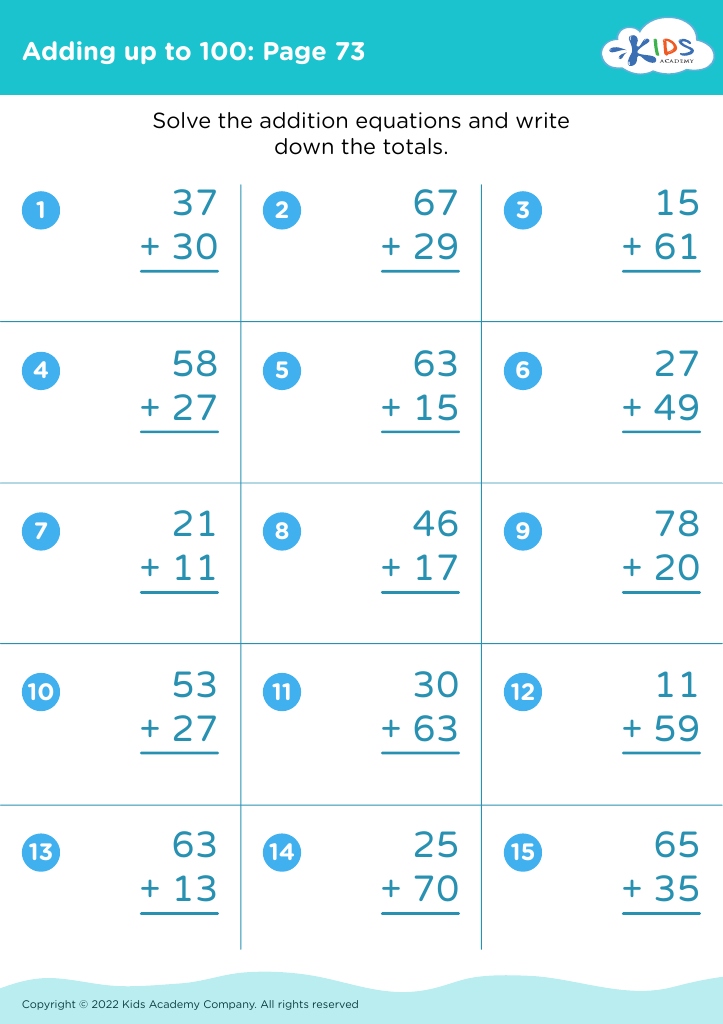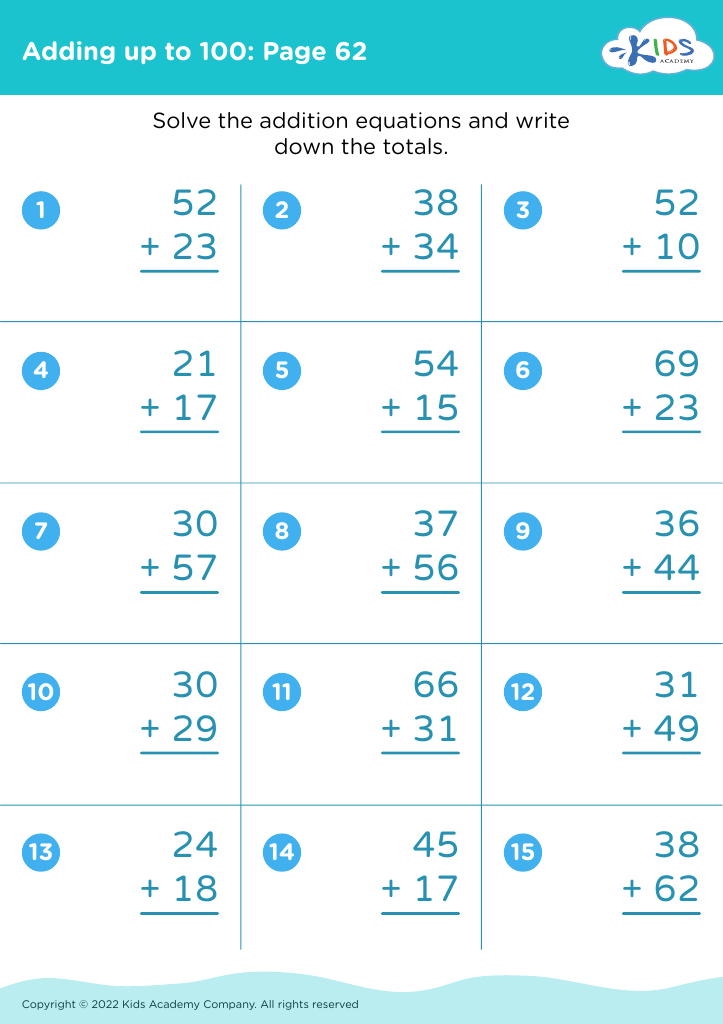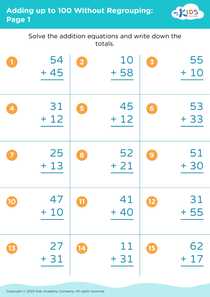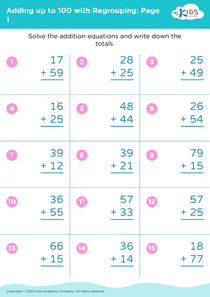Color Identification Adding up to 100 Misc Worksheets for Ages 6-7
4 filtered results
-
From - To
Discover our engaging "Color Identification Adding Up to 100 Misc Worksheets" designed specifically for children aged 6-7! These playful and interactive worksheets help young learners master essential math skills while enhancing their color recognition abilities. Each worksheet combines exciting visual elements with fundamental arithmetic exercises, making learning both effective and enjoyable. Kids will solve addition problems up to 100, all while identifying various colors, fostering creativity alongside cognitive development. Perfect for home or classroom use, these worksheets encourage independent learning and promote problem-solving skills. Watch your child develop a strong foundation in math through fun and colorful activities today!
Color identification and basic math skills are crucial for children aged 6-7, serving as fundamental building blocks in their overall learning and development. Recognizing colors enhances a child’s ability to categorize and make distinctions, which fosters critical thinking and creativity. Understanding colors also enriches students' vocabulary as they learn to describe their environment and express themselves better.
When it comes to incorporating numbers, adding up to 100 helps young learners grasp basic arithmetic concepts. This foundational skill is vital, not only for future math lessons but also for everyday situations. For instance, understanding addition enables children to solve simple problems they might encounter daily, such as counting items during play or managing small amounts of money.
Parents and teachers should prioritize these skills as they encourage cognitive development and support children in becoming confident learners. Additionally, integrating fun and interactive activities that blend color identification and basic addition can enhance engagement and enjoyment in the learning process. Whether through games, crafts, or real-world applications, combining these elements makes learning holistic and memorable, laying a strong foundation of knowledge that children can build upon as they grow.















